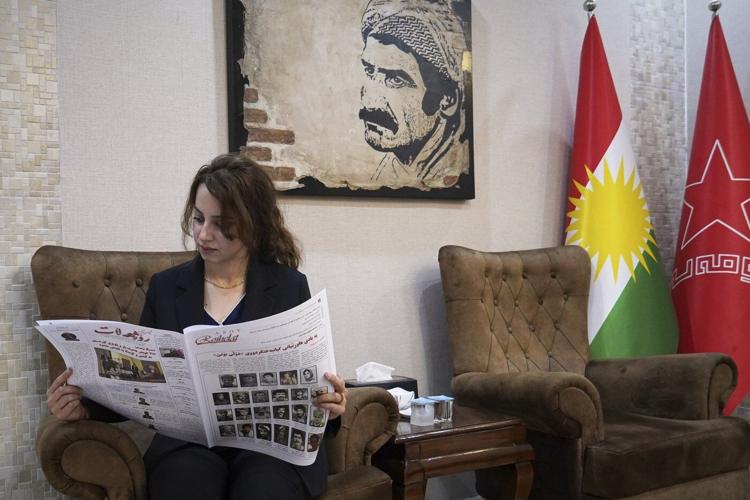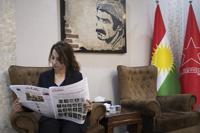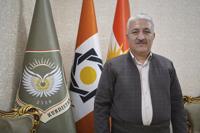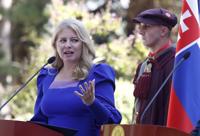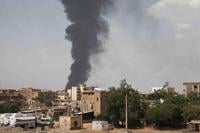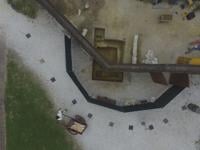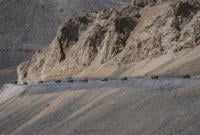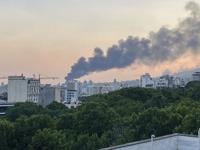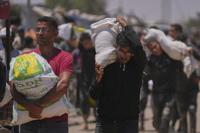IRBIL, Iraq (AP) — From abroad, Iranian Kurdish dissident groups have been watching closely for signs that Iran’s theocracy could falter in its grip on the country, battered by Israeli airstrikes in the intense, 12-day war until a U.S.-negotiated ceasefire halted the fighting.
Israel launched the strikes on June 13, drawing Iranian missiles that targeted Israel. But it was not until the United States inserted itself into the war and hit on Sunday, including with 30,000-pound , that the war came to a watershed moment.
Now, with the fragile ceasefire holding and many Iranians trying to return to a normal life, questions swirl about whether and how much the war has weakened Iran's clerical rule, in place since the 1979 Islamic Revolution.
Iranian Kurdish exiles in Iraq mull their options
A handful of Iranian Kurdish groups — many with a distinctly militant past — have long found a safe haven in northern Iraq’s semiautonomous Kurdish region, but their presence has been a point of friction between the central government in Baghdad and Tehran.
Iraq in 2023 reached and move them from their bases near the border areas with Iran — where they potentially posed an armed challenge to Tehran — into camps designated by Baghdad.
Their armed bases were shut down and their movement within Iraq restricted, but the groups have not entirely given up their weapons.
Officials with two prominent Iranian Kurdish groups in Iraq told The Associated Press they are trying to organize politically to ensure that they would not be sidelined should the administration in Iran lose its hold on power.
When asked if their groups were preparing an armed uprising, they either denied it or avoided a direct response.
Mixed expectations of any real change in Tehran
President floated the idea of in the wake of the U.S. strikes, only to have his administration later say that was not the goal. Some of the Kurdish dissidents say they expect no immediate upheaval in Iran's ruling theocracy.
“Some of the parties think this war between Iran and Israel is a good opportunity for us” to advance the Kurdish cause, said Khalil Naderi, spokesperson for the Kurdistan Freedom Party, or PAK, a separatist Iranian Kurdish group based in Iraq.
But Naderi disagreed with that premise. "The U.S. and Israel attacked Iran to protect themselves from its weapons, not for Kurdish rights,” he said.
Any premature armed mobilization on their part could endanger both the Kurdish groups and the fragile security of the Kurdish areas, both in Iraq and across the border in Iran, Naderi said.
His stand was a contrast to that of PAK leader Hussein Yazdanpanah, who days after the outbreak of the Israel-Iran war, called on X for Kurdish youth to rise against the authorities in Tehran.
“Attack the enemy, its centers, and its facilities” and “avenge the blood" of their fallen, Yazdanpanah posted.
And last week in Washington, where he had been pushing U.S. officials to include the Kurds in plans for a potential “day after” in Iran, Abdullah Mohtadi, the head of the leftist Komala Party from Iran's Kurdish regions, said he hopes the Israel-Iran war could represent a turning point.
“War can bring about internal domestic change," he said. "We hope that this time this will be the case.”
Lessons from war
Mohtadi denied that any external player, including the U.S. and Israel, had encouraged Kurdish groups to take up arms. But he didn't rule out the possibility that they would.
“We haven’t at the moment called for an uprising, or we haven’t called for an armed struggle, but we are monitoring developments very closely,” he said.
Mohtadi maintained that Komala has avoided an armed struggle for nearly 30 years and that its camps in northern Iraq are purely for “self defense.”
Both Komala and the PAK, as well as another exiled Kurdish group, the Democratic Party of Iranian Kurdistan or KDPI, have fought Iranian authorities in the past — but also sometimes fought against each other.
The groups have different approaches to the question of Kurdish separatism. PAK advocates for an independent Kurdish state, while Komala and KDPI want a system in Iran similar to that in northern Iraq, where Iraqi Kurds have a semiautonomous and self-governed region.
Iran has occasionally launched strikes on the Iranian Kurdish dissidents, but none during the Israel-Iran war this month.
Divisions among the groups
The dissident groups are walking a fine line, balancing the differences among themselves and with their hosts in Iraq, the Iraqi Kurds and the Iraqi government in Baghdad — neither of which they want to antagonize.
Despite having shared grievances over the marginalization of Kurds in Iran, the Iranian Kurdish parties have not been able to build a consensus
"We haven’t been able to unite, even though we would like to,” Naderi said.
In March, ahead of , the Kurdish dissident groups had planned to “meet and discuss" Kurdish rights and destiny, but plans fell through. Even now, he said, coordination remains elusive.
Kawsar Fattahi, a central committee member of Komala, said the dissidents should not plan for “the fall of the regime, but on what will happen after that.”
“Because our goal is to rebuild a new Iran,” she said.
Mohtadi, the Komala leader, said he has tried to reassure Washington that his group is not separatist but wants a “democratic, secular federal Iran where the rights of Kurds and other ethnic groups are protected by the new constitution.”
He denied anyone is pushing Komala into armed conflict.
“We aren’t puppets,” Mohtadi said. “Nobody has asked us to rise (up). We will decide when is the right time.”
___
Knickmeyer reported from Washington.

